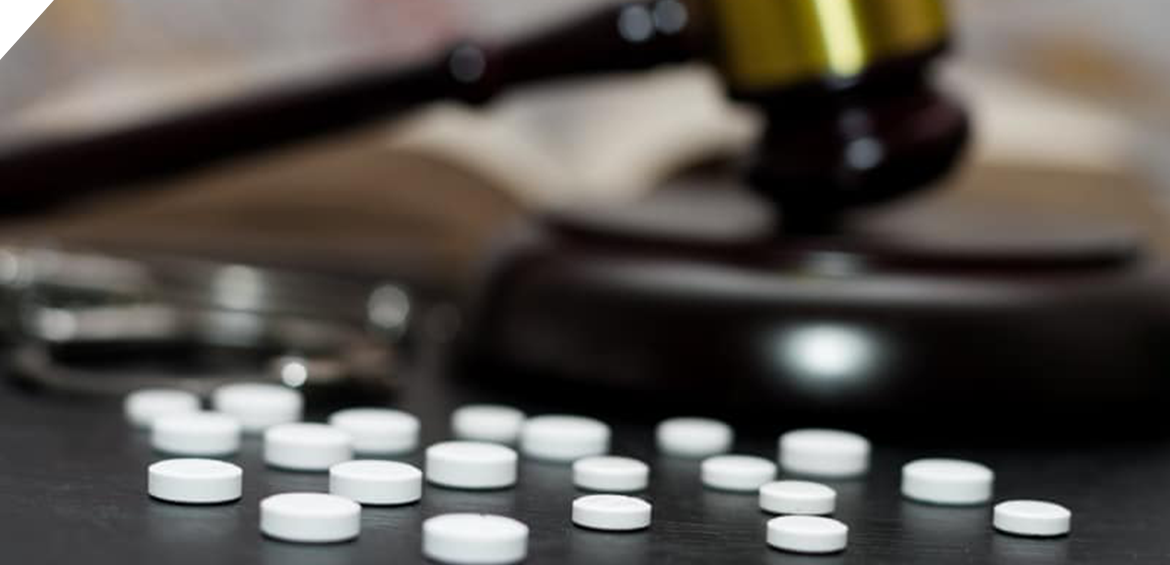What You Should Know About The Court-Ordered Rehab Process
Court-ordered rehab can be a valuable opportunity for individuals to address their substance use issues and receive the necessary support. Harmony Ridge Recovery can help.
The nation’s criminal justice system plays an essential role in helping those affected by drug or alcohol addiction. The courts can now direct offenders to participate in substance abuse or mental health treatment. Although court-ordered rehab requirements vary depending on the severity of substance abuse, courts do have the authority to mandate completion of an addiction treatment program.
Healthcare professionals and activists across the nation have been attempting to persuade policymakers that substance addiction should not be controlled by law enforcement. The argument is that substance abuse is a public health issue. As such, legislators should encourage efforts to improve access to substance addiction treatment rather than incarcerating users.
How Drug And Alcohol Abuse Complicates Charges
The problem does become complicated, though, when people use drugs or alcohol while engaging in criminal activity. A minor in possession of illegal drugs might not receive a lengthy prison sentence like a drug trafficker would.
This is a complex issue because those who have committed crimes deserve punishment, but they may also require substance addiction and mental health treatment. About 50% of state and federal prisoners fit the clinical standards of substance use disorder. However, only 20% of them received substance abuse treatment.
Statistics show that:
- 80% of offenses requiring incarceration involve drugs or alcohol
- 40% of traffic deaths involve alcohol
- 37% of inmates stated they were impaired from alcohol when arrested
- 40% of violent crimes included alcohol impairment
Studies also show that 95% of inmates have consumed drugs or alcohol upon leaving confinement, and roughly 60 to 80% commit drug-related crimes upon being released.
Substance abuse treatment helps prevent drug and alcohol use and break the cycle. This is why courts offer alternatives to jail or less harsh sentences to people who agree to attend an addiction treatment program.
Drug And Alcohol Courts
Virtually any court of law can order a drug-related offender to participate in educational or rehab programs. But some jurisdictions have specific courts meant to improve the outcomes for defendants accused of drug-related crimes.
Upon a person’s arrest, drug courts implement completion of a comprehensive therapeutic program as a parole or probation requirement. Court-ordered rehab allows those convicted of drug-related crimes to get substance abuse or mental health treatment when needed.
Drug courts can order people to check into a detox center, residential treatment, intensive outpatient treatment, self-help groups, and other treatment services. They can also require community service, vocational training, and proof of sobriety through random drug tests.
Staff in these programs understand that relapse is common among those in recovery, but they must report any alcohol or drug use. Drug courts impose consequences for any failed alcohol or drug tests. These become more severe with repeated dissent. Drug courts vary in the support they provide in the populations they are intended for.
The Three Types Of Drug Courts Include:
- Adult courts: Adult courts aim to reduce substance abuse by evaluating needs, administering treatment, observing behavior, and incentivizing good behavior with rewards.
- Juvenile courts: Juvenile courts have similar goals but stress education, family counseling, and family liability more than adult courts.
- Family courts: Family courts work with guardians suffering from substance use disorders to support stability and child custody. The treatment is comparable to that offered by adult courts, but they also teach members parenting skills. The court also accommodates children while their parents are attending treatment.
Other court systems have specialized programs for people with a history of military combat exposure, driving under the influence, or mental health disorders.
Cooperation in aftercare programs will continue after standard treatment ends. Drug courts help people reintegrate into society and help them find a job, schooling, and housing.
Types Of Court-Ordered Treatment
Pressuring somebody to quit drugs or alcohol through incarceration will not cure their addiction. It will give them a chance to detox, but it won’t teach them how to avoid relapse and prepare them for life without using drugs and alcohol once they’re released.
Pressured abstinence can also be dangerous for those with severe substance use disorders. To detox without medical supervision from benzodiazepines or alcohol can sometimes cause deadly withdrawal symptoms.
Published studies are responsible for making standard court-ordered substance abuse treatment services the way they are today. These must include intensive supervision, vocational education, progress reporting, and a work-release program.
Courts can also require offenders to complete substance addiction treatment programs while being randomly tested for drugs or alcohol and required to participate in support group meetings. These requirements can be achieved during their incarceration or required during their probationary period.
Who Can Be Ordered To Attend Court-Ordered Rehab?
Juveniles, adults, and guardians with a substance abuse disorder will be ordered to attend drug courts when arrested for drug-related crimes.
Some drug-related crimes include:
- Trafficking or possession of drugs
- Crimes directly correlated to drugs, like stealing money to pay for drugs
- Illegal behavior that enhances the risk of drug abuse, like associations with drug dealers and abusers
Each jurisdiction and state has different guidelines for cooperation in drug courts.
Standard Guidelines For Drug Court Cooperation Include:
- Arrested for a drug-related offense
- Adverse history of violence or sexual abuse
- Under three drug-related crimes
- Proof of intoxication when a violation was committed
- Addiction was the cause of the crime
- Compliant in pleading guilty
- Willing to comply with drug court demands
A history of drug and alcohol abuse is not the single reason someone attends drug court or is commanded to seek treatment. People with a history of mental health disorders may be ordered to obtain more intensive addiction treatment than others. Offenders who don’t meet the criteria for a substance abuse disorder could seek less intensive treatment like educational classes.
An offender’s lack of motivation shouldn’t prevent courts from ordering treatment. Several behavioral therapies, like motivational enhancement therapy, are intended to encourage a patient’s desire to inquire into help.
Contact Harmony Ridge Today!
The first step toward achieving recovery is to reach out to one of the rehabs in WV that can get you on the track to recovery. Our admissions team is available 24 hours a day, 7 days a week, 365 days a year. Give us a call today!
Contact Us TodayConsequences Of Refusing Court-Ordered Rehab
Sometimes, court-ordered rehab is a condition of parole or a probationary stipulation. People who are offered substance abuse treatment can usually refuse it and choose a longer jail sentence or a firmer legal discipline.
The only time an offender can reject court-ordered rehab and not receive additional punishment is if the treatment violates their constitutional rights. So far, more than 20 cases have supported a person’s right to decline substance abuse treatment on religious grounds.
Cost Of Court-Ordered Treatment
Analysis has shown that drug abuse across the nation has cost more than $193 billion. The criminal justice system’s law enforcement expenses, judicial and correctional costs have equaled over $56 million. U.S. taxpayers paid the majority of those costs.
While taxpayers pay the costs of most drug-related criminal justice expenses, defendants usually end up paying for their treatment. The cost of substance abuse treatment depends on the facility, the treatment program, and the length of treatment. Rehab programs usually range from $5,000 to $30,000.
Consequences Of Violating Court-Ordered Treatment
The consequences of violating a court-ordered rehab agreement will result in various factors. The offender ordinarily agrees to participate in substance addiction treatment to receive a shortened sentence, decreased fines, or to lessen community service hours. When the agreement is violated, the court can order the offender to serve the primary sentence.
The punishment will also depend on the violation. A relapse from using substances could result in drug tests, extensive monitoring, and more addiction therapy time. Selling or possessing large amounts of drugs could result in large fines and incarceration.
The defendant’s time in treatment, criminal history, and behavior during substance abuse treatment are also contributing factors. Reciprocated violations usually result in more severe consequences.
The Effectiveness Of Court-Ordered Rehab
Many people have claimed legal obligation is an important reason for seeking substance addiction treatment. According to various studies, the legal obligation can extend substance addiction treatment attendance and time, leading to better court-ordered rehab outcomes.
The effectiveness of the treatment will depend on a patient’s compliance in accepting change and full cooperation. For court-ordered rehab to be successful, offenders push all-in on their recovery.
Studies on legally-mandated substance addiction treatment show that most participants produce outcomes equal to patients who freely seek treatment. The best success rates come with a 90-day treatment stay, significantly decreasing drug abuse and criminal behavior.
Substance addiction treatment studies have shown effective rehab programs can help:
- Prevent relapse
- Decrease recidivism
- Decrease inmate misconduct
- Improve the acceptance of societal standards
- Increase employment opportunities upon release
- Increase overall health
- Enhance interpersonal relationships
Effective court-ordered rehab programs are beneficial to both society and offenders. Society can only benefit from increased productivity, reduced crime rates, and recovered patients reporting better health, earning capacity, and happiness.
Harmony Ridge Recovery Center Can Help With Court-Ordered Rehab
If you or a loved one need to enroll in court-ordered rehab, Harmony Ridge Recovery Center can help. Our treatment staff has years of experience with substance abuse treatment and know what it takes to get clean and sober.
Although this might not be voluntary, becoming sober will reflect on a much healthier, happier lifestyle. Don’t hesitate any longer. Contact us today at Harmony Ridge Recovery Center to get the answers you seek.
Jump To Section
Begin Your Journey to Healing Here
Ask me about recovery, I can help you!
Our recovery specialists are standing by 24/7 to help you or your loved one.
Or call us: 




